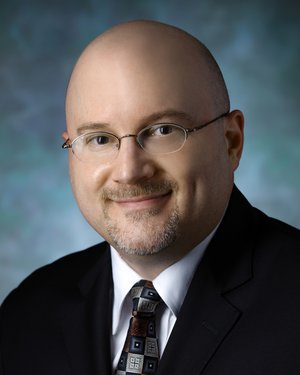Background
David Newman-Toker, M.D. Ph.D. is Professor of Neurology, Ophthalmology, and Otolaryngology, and is the inaugural recipient of the David Robinson Professor in Vestibular Neurology. He holds joint appointments in Emergency Medicine and Health Sciences Informatics at the Johns Hopkins University School of Medicine, as well as in Epidemiology and Health Policy & Management at the Johns Hopkins Bloomberg School of Public Health.
Dr. Newman-Toker's academic mission is to eliminate harms from diagnostic errors and maximize the accuracy and efficiency of diagnostic testing in clinical practice. He is as a Core Faculty member of the Armstrong Institute for Patient Safety & Quality, where he serves as Director of the Armstrong Institute Center for Diagnostic Excellence, focused on enhancing diagnostic safety, quality, and value.
Dr. Newman-Toker's research focuses on preventing missed strokes in the emergency department and primary care, especially among patients presenting with acute, severe vertigo or dizziness. He and his collaborators have developed innovative methods to diagnose stroke through careful bedside examination of eye movements. He is now translating these innovations into clinical practice through the use of novel technologies at the point of care.
Dr. Newman-Toker's clinical expertise is in disorders of the brainstem and cranial nerves, including visual loss, double vision, and vertigo. He serves as Director of the Division of Neuro-Visual & Vestibular Disorders. His clinical practice focuses on emergency evaluation of patients with acute vertigo and dizziness. He does not currently have an outpatient clinic practice.
Dr. Newman-Toker completed his undergraduate education at Yale University (B.S., 1991) and his medical training at the University of Pennsylvania School of Medicine (M.D., 1995). After completing his Neurology residency at the Massachusetts General Hospital (1999), he went on to complete fellowships in Neuro-Ophthalmology at Harvard University/Massachusetts Eye & Ear Infirmary (2000) and in Neuro-Otology at the Johns Hopkins University School of Medicine (2002). He completed his doctoral training in clinical research methods at the Johns Hopkins Bloomberg School of Public Health through the Graduate Training Program in Clinical Investigation (Ph.D., 2007).


Patient Ratings & Comments
The Patient Rating score is an average of all responses to physician related questions on the national CG-CAHPS Medical Practice patient experience survey through Press Ganey. Responses are measured on a scale of 1 to 5, with 5 being the best score. Comments are also gathered from our CG-CAHPS Medical Practice Survey through Press Ganey and displayed in their entirety. Patients are de-identified for confidentiality and patient privacy.